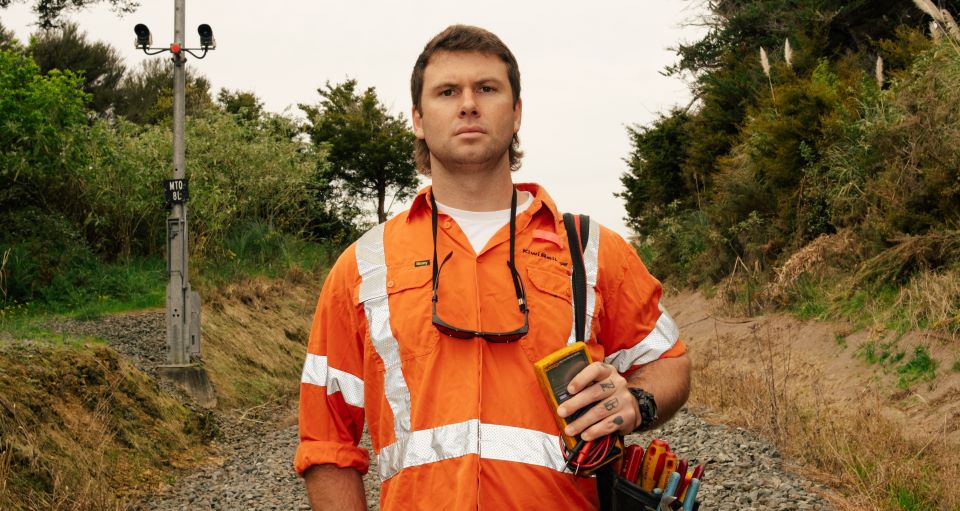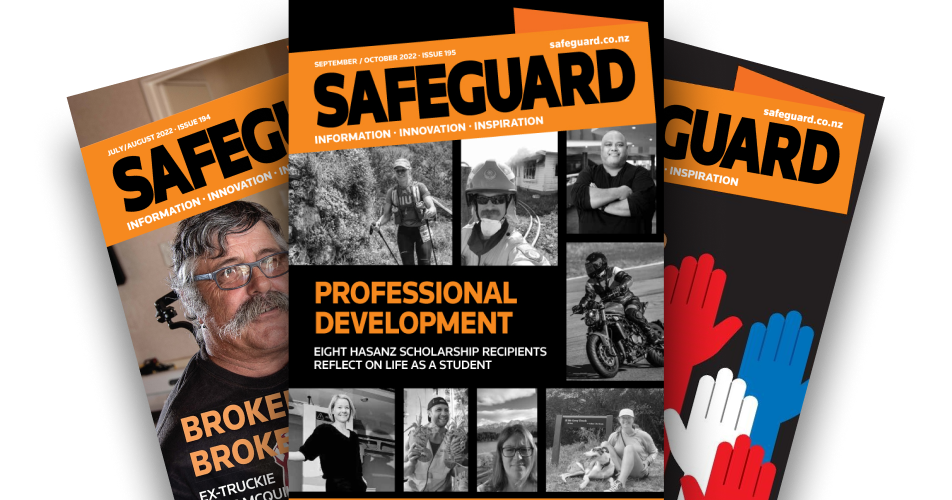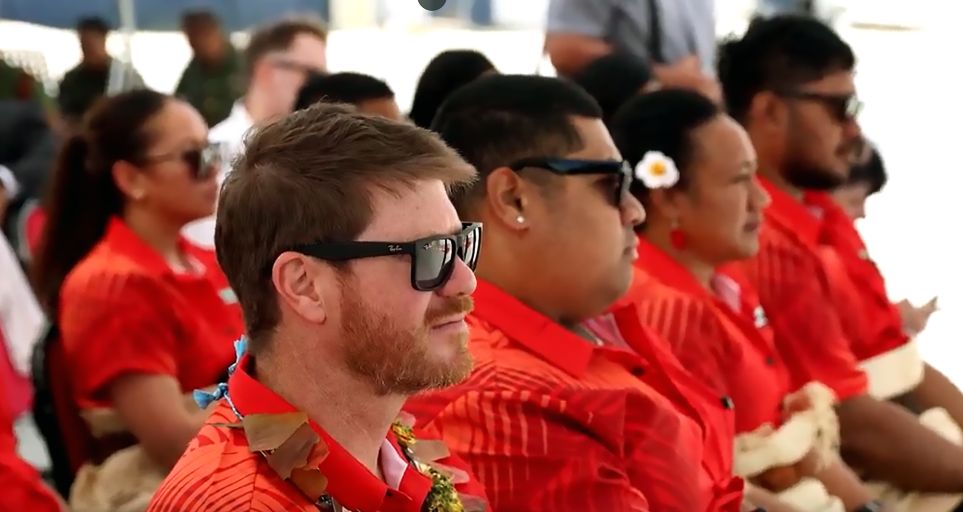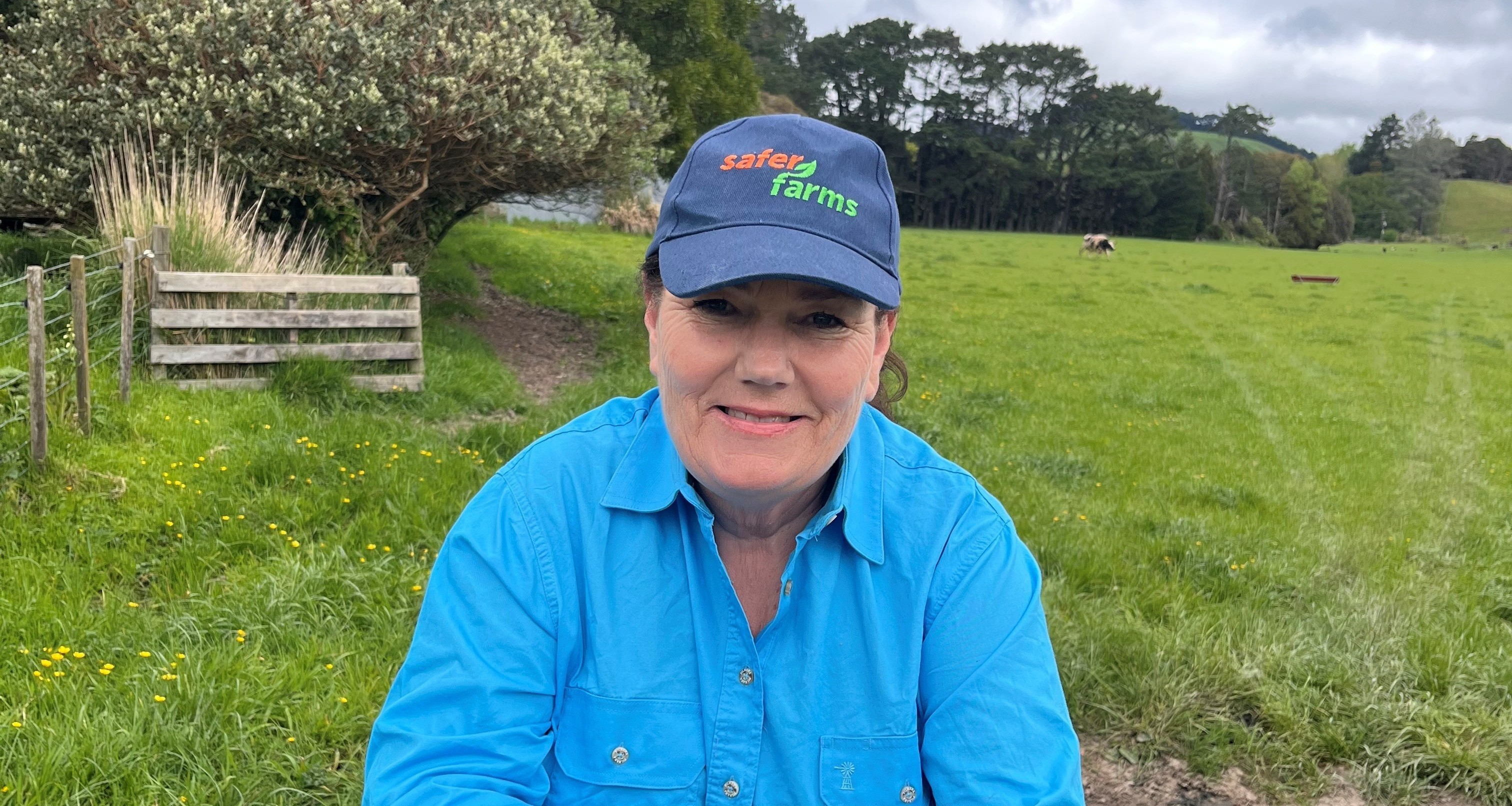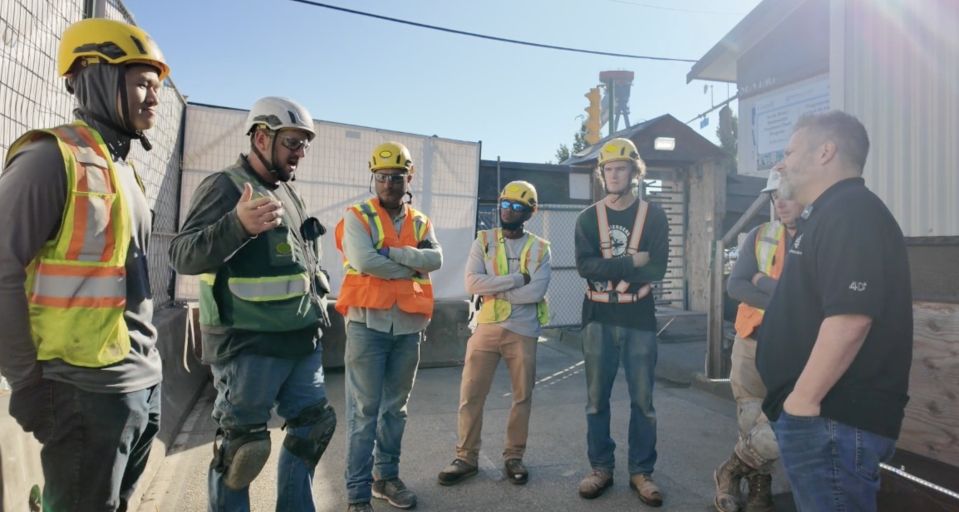When KiwiRail health and safety rep Mathew Bennie issued a red card stopping work on a track upgrade one night, he thought it was “just another conversation”.
Bennie, a Whangārei-based signal technician with KiwiRail and an HSR on the company’s Whangārei Networks Health and Safety Action Team, had been involved in the risk assessment for night works around the city.
The works were on a five-metre embankment, and the risk of a fall from height was identified. Bennie suggested harnesses, lanyards and rail dogs, which are an anchor for fall restraint. But on the night of the works, Bennie got a call from the leading hand, or track ganger, to tell him no one had been trained in working at height yet, and there were no harnesses on site.
Bennie’s response: “Sit in the truck because you’re not going to work tonight.”
In previous roles as a contractor, Bennie had said no to work because it was unsafe or unreasonable. “It was just another conversation, I thought – stopping work and making people safe.”
In fact, Bennie’s bigger concern was telling the ganger – a mate – that he had to stop work. “I know him, he wants to get the job done, and I had to tell him you’re not working tonight mate.”
It would be a year later, sitting alongside KiwiRail chief executive Peter Reidy at the New Zealand Workplace Health and Safety Awards earlier this year – where Bennie won the HSR category – that he realised the full significance of what he had done.
“Peter Reidy said he wanted me to come and speak to the executive team. I said, ‘ok, this must mean something’. He’s like, ‘It does’.
“The executive team want people to change their behaviours, they want us to be mature about safety, understanding that when someone stops work it is not an attack on the manager for doing the wrong thing.”
It is, he says, a case of ‘the work you walk past is the standard you set’ – and KiwiRail’s executive don’t want its team to be walking past poor work.
Escalation success
The red card is a tool developed by the Rail Maritime Transport Union for workers to raise to stop unsafe work. Pushback from Bennie’s issuing of one was immediate, with a challenge from the project manager.
Bennie escalated the issue to KiwiRail leadership, the KiwiRail health and safety team and the RMTU who, in a meeting the day after the stop work, agreed the risk wasn’t being managed in accordance with risk assessment and that the red card was warranted.
New equipment arrived on site the following day and work continued.
For Bennie, who is also an elected union delegate, workers’ rights and health and safety go hand in hand. He says it was never his goal to be an HSR, but it’s something he believes in.
“I’ve got two boys and I need to get home to them and my partner. On the flip side, when I’m wearing my health and safety hat, I’m thinking about whether I would let my two boys do that act. That’s how I look at things.”
Australian experience
Bennie started his working life on the railroads of New South Wales as a 16-year-old, before moving to Western Australia to work on rail in the mines – a period he dubs “an eye opener” in terms of understanding health and safety.
It was there that he would have an ‘a-ha’ moment when, after an incident, a manager asked Bennie if he had someone at home who loved him, and asked how they would feel about what had happened.
“That’s stuck with me. My colleagues have someone at home as well. We need to send them home to them.”
A decade on, Bennie’s in his second HSR role, having previously been an HSR at Fonterra, and says he’s focused on ensuring KiwiRail teams are looking after themselves.
As a signal technician he’s mobile between Moerewa and Helensville and uses that as an opportunity to stop in and chat with teams throughout Northland to see how things are going and what they need.
He says he’s built a good relationship with KiwiRail’s management teams, who now come to him with queries about how a job is done.
“The guys on the ground get the training and understand the standards they’re meant to work to. Management doesn’t get that same training, so they rely on us for that understanding of what to do.
“If we understand each other, we get a better outcome.”
He’s also been involved in workshops to create more effective safety systems – an ongoing initiative at KiwiRail.
You have a voice
The issuing of the red card was a defining moment for Bennie, and he says it’s shown him that he does have a voice.
“I knew I had a voice before, locally, but not within the wider aspect of KiwiRail.
“You can change people’s behaviours with the help of the workers around you and the management teams. I love my job as a signal tech, but I’m understanding that I can do a lot more for people around me with my other hats that I wear. I can make a change here.”
He’s adamant, too, that it doesn’t matter how big your audience – working locally with colleagues will still elevate your voice and help provide results.
“Even before I won the award people knew to contact me, and I was invited to workshops because I’ve been so vocal about things. You just can’t stop.
“Keep being the voice and you’ll get noticed and if you keep the support of the workforce around you, they’ll be your voice as well.”
